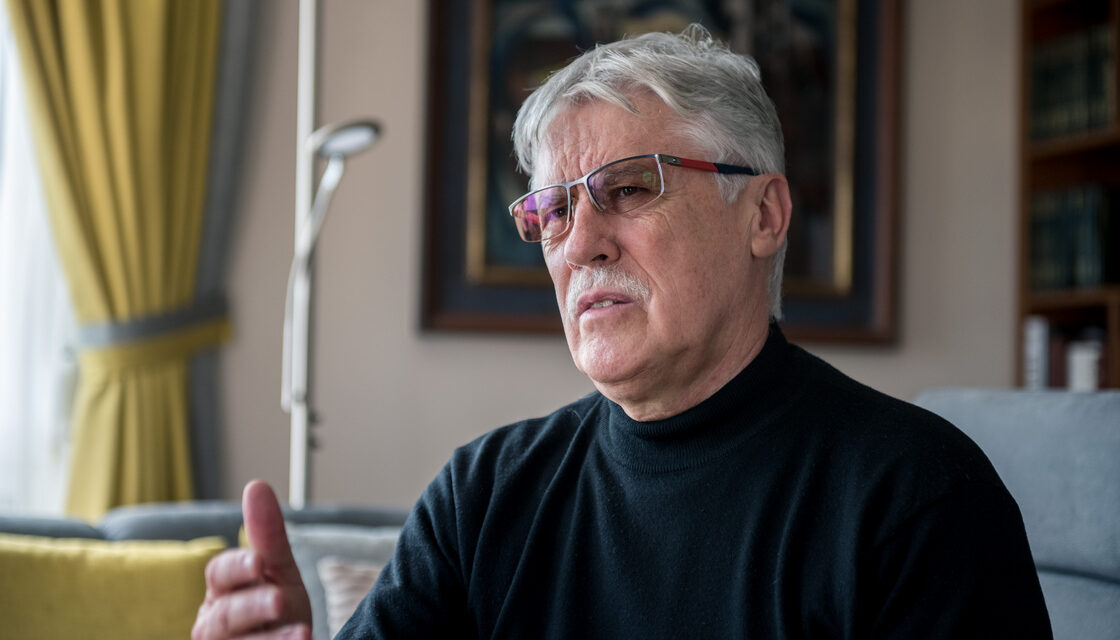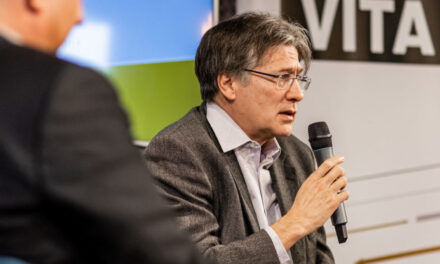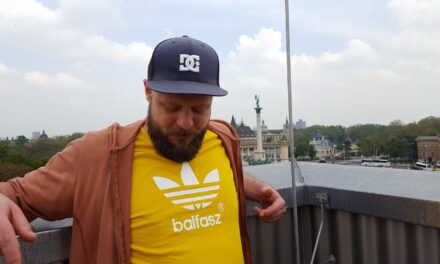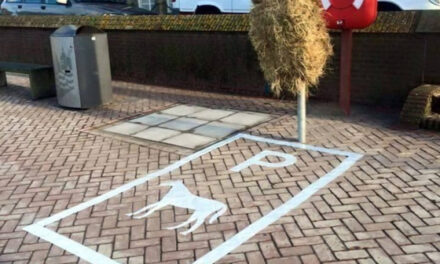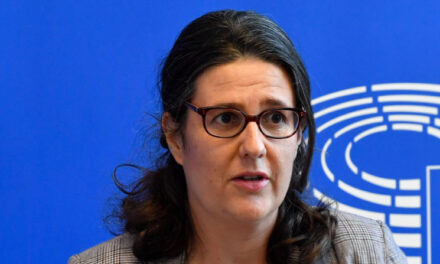Imre Mécs screamed and did not vote for the law reminding of communist crimes. Then, as a 56-year-old death row inmate, he lined up behind the puffy-faced Gyula Horn.
Dear God, where did we live? And how did we not see where we live? OK, we were young, OK, children don't care about politics, but where did we live? And why do today's descendants lie about the reality of that time? The current heirs of the former Bolsheviks? Unfathomable.
I talk to former MDF and FKGP representative Béla Horváth Otherwise, because we were classmates in primary school, so in theory we should have known each other. We still didn't know who was a believer and who was a faithful atheist. I didn't know about Béla, he didn't know about me either. We also had to hide from each other. Isn't it terrible? But how it is!
– Not much has changed, although after the regime change we thought everything would be different. It was like that for a while, but now we should be atheists again, because those who are not, at best, will be pitied, or worse, torn to pieces by the mainstream Bolshevik side.
- He didn't "want" to be different in the beginning either. Just think about how the restriction law was undermined and how difficult it was to get the Commemoration Day for the Victims of Communism accepted.
- Anyone who wants to learn more about what happened at that time would do well to read the recently published book, Clinging to Christ. It is partly about the tug-of-war surrounding the acceptance of the Memorial Day, and partly about the recipients of the Shield of Faith Award. You founded the award together with Tibor Gyurkovics and, to be honest, it was only then that I found out that you are a person of faith.
- Under socialism, it was not advisable to advertise that one is religious. I was born into a Catholic bourgeois family, where everyone practiced their faith. My sister, who became an elementary school teacher majoring in mathematics and physics, had to go to the other end of the city because teachers were forbidden to be religious. When we moved into one of the townhouses near the BAH junction when I was four or five years old, the transport junction did not exist. There was a larger family house opposite today's park, and there was a small chapel on its ground floor, but I didn't like going there because there was never a place to sit. When it was demolished, I started going to St. Imre's Cistercian church, where I quickly became a minister, and stayed there until I was a university student.
– This history was only important because if we jump a bit further in time, your political career becomes understandable.
– When I spoke in the Parliament in 2000 and initiated the memorial day, the left-liberal side started rolling. Their press attacked the loudest, Népszava, Népszabadság, 168 hóra and the Farkasházys spewed fire, but the MSZP and SZDSZ representatives also shouted at me. I didn't even understand why this shocking protest. For example, there were two left-liberal representatives, they don't deserve to say their names, who submitted amendments against the draft. The point was to delete it all. The tug-of-war went on for months, and then the supporters slowly woke up. The 56 organizations, the Recski Alliance and others applied, while the governing parties, Fidesz, MDF, and the opposition MIÉP also clearly supported the idea.
"I don't understand the great uproar, even in retrospect, because who does it hurt when we remember the victims?" Or to that "wonderful idea", the implementation of which - in the words of Sándor Fábry - did not require more than 100 million dead? I don't think there is a family in Hungary that was not adversely affected by communist oppression.
- During the parliamentary debates (because the general and then the detailed debates lasted for several months), I refrained from starting a war of numbers. I approached the question in the way that there were two anti-human dictatorships in the 20th century, the brown one and the red one, i.e. the Nazi and the Bolshevik terror. I didn't want to argue about which one killed more innocent people because the loss of any life is tragic. I still somehow understood that those who were at the mercy of the system in the communist times do not want to remember. But there was, for example, Imre Mécs, who was sentenced to death for his activities in 1956, and who spoke out loudest against the memorial day. He didn't even vote for it, if I remember correctly, perhaps 4-5 MSZP representatives from the left-liberal side only said yes. If I were to be malicious, I would say that they accidentally pressed the wrong button, but let's be kind, maybe they had a conscience. However, neither the SZDSZ nor the MSZP voted for the memorial day.
– Remembering those times, it was certain that the anger of the liberal side would know no bounds with such a proposal. Someone who avoids conflicts would certainly not have started this battle.
– I earned the dislike of the SZDSZ before. In 1990, the XII. I ran for the individual parliamentary seat in the district, my opponent was Mihály Ráday. He is a nationally known TV personality, so they were sure of his victory. I, on the other hand, defeated him with a fairly clear majority, which I was not forgiven for. Ráday did not accept my greetings, when I asked to speak on any topic in the parliament, the SZDSZ members immediately shouted, interrupted my speech wherever they could, of course I was not interested in the matter, they were enraged. For example, I also spoke in the matter of accountability, speaking out against the extension of the pioneer camp in Csillebérc, putting it quite harshly. My MDF friends were also worried, they said, you, Béla, this is going to be a huge debate. I answered, let it be. It happened that the SZDSZ faction even left the room, and I still expressed my opinion. I will never forget, when I showed my little blue pioneer membership book and quoted that according to point 6, a pioneer speaks the truth and acts justly, Imre Pozsgay, who was sitting across from me, made a good point.
- The law was passed, on the basis of which we remember the victims of communism on February 25. There's just a little problem here. A law is worth as much as it can be obeyed. However, some of the teachers do not sympathize with the matter, i.e. their commemoration, to put it mildly, remains to be seen. Fortunately, there are fewer and fewer of these to be found. On the other hand, there are many who for some reason do not consider it important to talk about the religious persecution of the communists.
– The clergy and the church have always been a prominent enemy of the system. That is why I thought it was important to establish the Shield of Faith Award together with Tibor Gyurkovics. It can be given to those still living members of the church who have demonstrated their unshakable commitment to the faith by the example of their lives. Let the young generation get to know them and their story, let them know what kind of church persecution took place here in the Rákosi and Kádár regimes. It is not enough to know that yes, they persecuted the church, but they also need to know what this meant in practice. They tortured, beat, and treated these priests, monks, and nuns terribly. But their faith armed them with the ability to resist, and following their example, young people can learn that it was still possible to stand up against a dictatorship.
"It's not easy to be a Christian these days either." In the best case, they just wink at us, shriveled, out-of-date figures, but not infrequently they act hostilely against us. Not to mention Europe, where the abandonment of faith is compounded by the army of Jew- and Christian-hating Muslims.
– Quoting my favorite writer and historian, Ernő Raffai: since the French Masonic Revolution, a spiritual battle has been going on in the world and Christianity is under constant attack. The country experienced the first, rough version of this during the bloodbath of the red dictatorship in 1919, and then the persecution continued after 1945 with the violent organizations of the state party, the rampage of the ÁVH thugs, the torture and imprisonment of priests, monks, and nuns, concept trials, and executions. Nowadays, it's a little more hidden, but the same thing is going on. Pope Benedict, whom I greatly respect, called this the dictatorship of relativism. We don't have to go far to realize the aspiration. If there are 3-4 misguided and reprehensible priests in the ranks of the clergy, the liberal media presents this as if it were characteristic of the entire Hungarian Catholic Church. Meanwhile, if someone from their ranks can be accused of a similar deviation, it is presented as a unique case, an almost forgivable act, and the perpetrator is excused.
- It is not controversial to say that a pedophile act is tragic and condemnable even if it is committed by a priest, but to immediately trample the entire church in the mud for this reason is outrageous. While there is nothing to see in their man's case, let's get off this poor man.
- The reason for this basic attitude is also the anti-clerical brainwashing under communist rule. A personal example of this: I went to Jóská, i.e. József Attila high school, which originally belonged to the Cistercian order under the name St. Imre. Anyway, today it is again. There is an alumni group on Facebook, I am also a member. When the Cistercians got the gymnasium back, many people were upset about it and it turned out that they had no idea that the institution originally belonged to the Cistercians. During and after 45 years of communism, generations with a lack of knowledge grew up, the serious results of which we are now seeing.
– Knowing everything, what hope can we have for the future?
– I think the nation has enough strength to withstand these attacks. There is still sanity in the face of these Western attempts. We cannot deny that this strength is wearing out in the big cities, but it is no coincidence that Fidesz has a very strong base in the countryside. Throughout history, the Hungarian countryside and the Hungarian peasants were the ones who went to war for the country as kurucs, as the 48th army, in the I. and II. In World War. They provide the nation's real strength even today.
Author: György Tóth Jr
Cover image source: Index/Tamás Sóki

